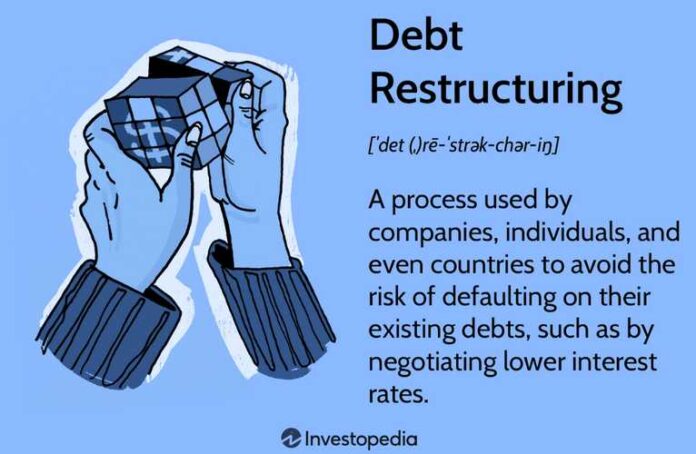Article’s background
- I happened to read the attached article (Read the Article here) titled “Bondholders could make $14bn from emerging market restructurings, says Debt Justice” published in the UK Financial Times, yesterday, based on research findings by Debt Justice, a UK debt campaigner.
- These findings are made on expected risks and returns of foreign bond restructuring of several countries including Sri Lanka mediated by the IMF under its bailout programmes.
- Therefore, the purpose of this article is to share the highlights of the research, mainly on undue restructuring profit to bondholders, as published in the Financial Times as this research provides a good eye-opener to assess the benefits of the ongoing debt restructuring methodology to the country.
- However, no attempt is made to comment on Sri Lankan debt restructuring progress or profit/loss as relevant official agreements or facts approved by the Parliament are not yet available.
Highlights of the article
- An estimated debt relief of $30 bn in the years ahead for the countries in debt crisis.
- An estimated profit of $14 bn to bondholders from restructuring of same debt.
- Assumptions for $ 14 bn profit estimation to bondholders are as follows.
- Present bondholders comprise 50% in original investment at face value and other 50% who bought bonds at lower market prices pending default.
- Restructured bonds will be repaid. Therefore, profit is a theoretical estimate.
- Estimated profit reflects both high interest payment before default and benefit of buying bonds at low market prices after default.
- Profit will be as low as $1.9 bn if all restructured bonds had been bought at the face value and attracted no upside payments.
- Profit will be as high as $ 26 bn if all restructured bonds had been bought at low market prices and attracted the maximum possible upside payment.
- A further sizable gain to investors/bondholders over time if governments avoid further defaults in years ahead.
- Such profits to bondholders could be more than a third of original bondholders’ investment value (generally the face value).
- Therefore, defaulted countries are not receiving a sufficient debt relief or reduction in their borrowing.
- These countries do not have enough negotiating powers to get sufficient relief to avoid restructuring in future.
- Therefore, there are dangers of having to restructure bonds again in future.
- Bondholders have got a substantial upside from deals with Sri Lanka and Zambia.
- Provision of contingent payments to bridge disagreements over official projections of post-restructured path of economies and to continue negotiations.
- Rewarding bondholders with higher interest payment if their economies outperform targets in the years ahead.
- Some of countries such as Sri Lanka to reduce interest payments in the event of future economic troubles.
Remarks
- Country authorities have been painting a rosy picture of debt sustainability to be achieved through ongoing debt restructuring gains, especially foreign debt, under the IMF loan programme.
- However, research findings listed above show substantial costs as well as dangers of having to restructure debt again in future. Therefore, it is doubted whether those who hanled debt rework genuinely assessed and balanced the risks and returns to respective countries in long-term interests.
- Serious concerns are already raised by some political leaders of Sri Lanka over a possible re-default in 2028 when repayments start under the restructured terms.
- Another public concern is that those who raised debt under unsustainable terms and mismanaged debt are dealing with default and restructuring of same debt that accrues further benefits to creditors (see above highlights). Therefore, debt restructuring governance faces serious lapses.
- Warren Buffet, a well known, global investor, once stated that creditors who lent unsustainably must bear the loss and managers who borrowed unsustainably must be sacked. This view made irrelevant to business companies is also applicable to any debt whether private or public.
- Grave mismanagement of public debt in Sri Lanka is popular at political platforms. However, no leaders seem to commence investigating and addressing relevant public concerns, other than continuing to borrow in rising amounts under same systems that have made debt unsustainable and unproductive. The fact that debt is a heritage in succession is a great relief to those who govern the country and is a great privilege to them to compete for gaining the government power.
- Restructuring of debt alone without restructuring or replacing of systems and managers that raised and mismanaged debt to default is the very source of the danger of the default again in the years ahead. Therefore, talks over re-emergence from the the bankruptcy immediately after debt restructuring would be futile.
(This article is released in the interest of participating in the professional dialogue to find out solutions to present economic crisis confronted by the general public consequent to the global Corona pandemic, subsequent economic disruptions and shocks both local and global and policy failures. All are personal views of the author based on his research in the subject of Economics which have no intension to personally or maliciously discredit characters of any individuals.)

P Samarasiri
Former Deputy Governor, Central Bank of Sri Lanka
(35 years of staff grade service in the Central Bank, a former Director of Bank Supervision, Assistant Governor, Secretary to the Monetary Board and Compliance Officer of the Central Bank, Former Chairman of the Sri Lanka Accounting and Auditing Standards Board and Credit Information Bureau, Former Chairman and Vice Chairman of the Institute of Bankers of Sri Lanka, Former Member of the Securities and Exchange Commission and Insurance Regulatory Commission and the Author of 13 Economics and Banking Books and a large number of articles published.)
Source: Economy Forward

